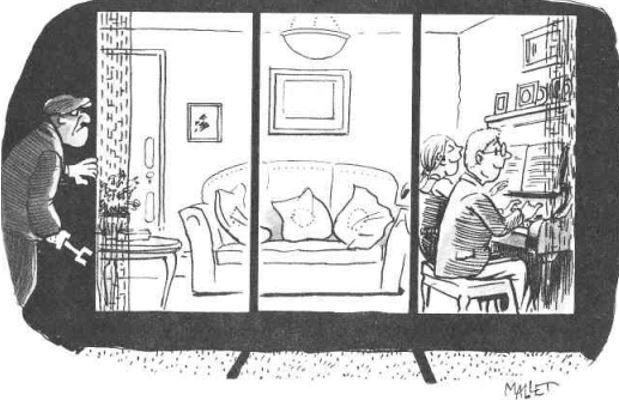

Grammar


Tenses


Present

Present Simple

Present Continuous

Present Perfect

Present Perfect Continuous


Past

Past Simple

Past Continuous

Past Perfect

Past Perfect Continuous


Future

Future Simple

Future Continuous

Future Perfect

Future Perfect Continuous


Parts Of Speech


Nouns

Countable and uncountable nouns

Verbal nouns

Singular and Plural nouns

Proper nouns

Nouns gender

Nouns definition

Concrete nouns

Abstract nouns

Common nouns

Collective nouns

Definition Of Nouns


Verbs

Stative and dynamic verbs

Finite and nonfinite verbs

To be verbs

Transitive and intransitive verbs

Auxiliary verbs

Modal verbs

Regular and irregular verbs

Action verbs


Adverbs

Relative adverbs

Interrogative adverbs

Adverbs of time

Adverbs of place

Adverbs of reason

Adverbs of quantity

Adverbs of manner

Adverbs of frequency

Adverbs of affirmation


Adjectives

Quantitative adjective

Proper adjective

Possessive adjective

Numeral adjective

Interrogative adjective

Distributive adjective

Descriptive adjective

Demonstrative adjective


Pronouns

Subject pronoun

Relative pronoun

Reflexive pronoun

Reciprocal pronoun

Possessive pronoun

Personal pronoun

Interrogative pronoun

Indefinite pronoun

Emphatic pronoun

Distributive pronoun

Demonstrative pronoun


Pre Position


Preposition by function

Time preposition

Reason preposition

Possession preposition

Place preposition

Phrases preposition

Origin preposition

Measure preposition

Direction preposition

Contrast preposition

Agent preposition


Preposition by construction

Simple preposition

Phrase preposition

Double preposition

Compound preposition


Conjunctions

Subordinating conjunction

Correlative conjunction

Coordinating conjunction

Conjunctive adverbs


Interjections

Express calling interjection


Grammar Rules

Passive and Active

Preference

Requests and offers

wishes

Be used to

Some and any

Could have done

Describing people

Giving advices

Possession

Comparative and superlative

Giving Reason

Making Suggestions

Apologizing

Forming questions

Since and for

Directions

Obligation

Adverbials

invitation

Articles

Imaginary condition

Zero conditional

First conditional

Second conditional

Third conditional

Reported speech


Linguistics

Phonetics

Phonology

Linguistics fields

Syntax

Morphology

Semantics

pragmatics

History

Writing

Grammar

Phonetics and Phonology

Semiotics


Reading Comprehension

Elementary

Intermediate

Advanced


Teaching Methods

Teaching Strategies

Assessment
Sharing A Piano
المؤلف:
L.A Hill
المصدر:
Intermediate Steps To Understanding
الجزء والصفحة:
52-1
8/11/2022
1718

Jim was intelligent, but he hated hard work. He said, 'You work hard, and earn a lot of money, and then the government takes most of it. I want easy work that gives me lots of money and that the government doesn't know about,
So he became a thief-but he did not do the stealing: he got others to do it. They were much less intelligent than he was, so he arranged everything and told them what to do.
One day they were looking for rich families to rob, and Jim sent one of them to a large beautiful house just outside the town.
It was evening, and when the man looked through one of the windows, he saw a young man and a girl playing a duet on a piano.
When he went back to Jim, he said, "That family can't have much money. Two people were playing on the same piano there.
A Which of these sentences are true (T) and which are false (F)? Write Tor F.
- Jim was clever, but lazy.
- He didn't like paying taxes.
- He always used clever people to steal for him.
- They tried to find rich families.
- One of his men played a duet on a piano with a girl.
- The girl's family was poor.
B Answer these questions:
- Why did Jim become a thief?
- How did he steal things?
- What was his job in this?
- Why was he good at it?
- What did he send one of his men to do one evening?
- What did the man see?
- What did he say to Jim?
- What mistake did he make?
C Opposites: Find words in the story which mean the opposite of:
- difficult
- lazy
- little
- more
- old
- poor
- small
- spend
- stupid
- ugly
 الاكثر قراءة في Intermediate
الاكثر قراءة في Intermediate
 اخر الاخبار
اخر الاخبار
اخبار العتبة العباسية المقدسة

الآخبار الصحية















 "المهمة".. إصدار قصصي يوثّق القصص الفائزة في مسابقة فتوى الدفاع المقدسة للقصة القصيرة
"المهمة".. إصدار قصصي يوثّق القصص الفائزة في مسابقة فتوى الدفاع المقدسة للقصة القصيرة (نوافذ).. إصدار أدبي يوثق القصص الفائزة في مسابقة الإمام العسكري (عليه السلام)
(نوافذ).. إصدار أدبي يوثق القصص الفائزة في مسابقة الإمام العسكري (عليه السلام) قسم الشؤون الفكرية يصدر مجموعة قصصية بعنوان (قلوب بلا مأوى)
قسم الشؤون الفكرية يصدر مجموعة قصصية بعنوان (قلوب بلا مأوى)


















